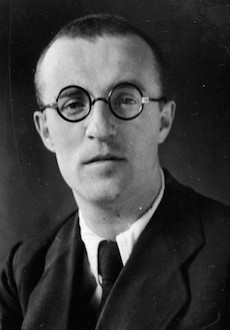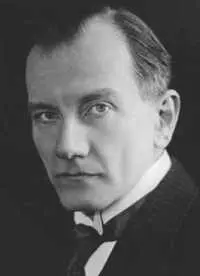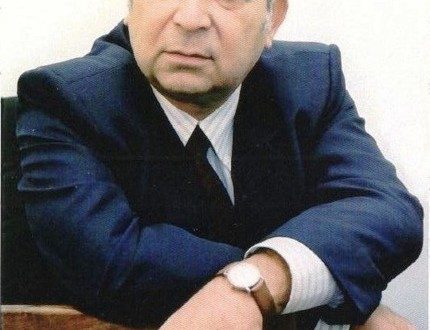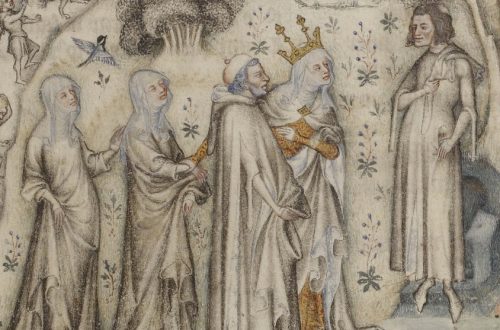
Georgy Vasilyevich Sviridov |
Georgy Sviridov
… In turbulent times, especially harmonious artistic natures arise, embodying the highest aspiration of man, the aspiration for the inner harmony of the human personality as opposed to the chaos of the world … This harmony of the inner world is connected with understanding and feeling the tragedy of life, but at the same time it is overcoming this tragedy. The desire for inner harmony, the consciousness of the high destiny of man – that’s what now especially sounds to me in Pushkin. G. Sviridov
The spiritual closeness between the composer and the poet is not accidental. Sviridov’s art is also distinguished by a rare inner harmony, a passionate aspiration for goodness and truth, and at the same time a sense of tragedy that comes from a deep understanding of the greatness and drama of the era being lived through. A musician and composer of enormous, original talent, he feels himself first of all a son of his land, born and raised under its sky. In the very life of Sviridov there are direct links with folk origins and with the heights of Russian culture.
A student of D. Shostakovich, educated at the Leningrad Conservatory (1936-41), a remarkable connoisseur of poetry and painting, himself possessing an outstanding poetic gift, he was born in the small town of Fatezh, Kursk province, into the family of a postal clerk and teacher. Both father and mother of Sviridov were local natives, they came from peasants close to Fatezh villages. Direct communication with the rural environment, like the boy’s singing in the church choir, was natural and organic. It is these two cornerstones of Russian musical culture – folk songwriting and spiritual art – that lived in the musical memory of the child from childhood, became the mainstay of the master in the mature period of creativity.
Early childhood memories are associated with images of South Russian nature – water meadows, fields and copses. And then – the tragedy of the civil war, 1919, when Denikin’s soldiers who burst into the city killed the young communist Vasily Sviridov. It is no coincidence that the composer repeatedly returns to the poetry of the Russian countryside (the vocal cycle “I Have a Peasant Father” – 1957; the cantatas “Kursk Songs”, “Wooden Russia” – 1964, “The Baptist Man” – 1985; choral compositions), and to terrible upheavals revolutionary years (“1919” – part 7 of “Yesenin’s Memory Poem”, solo songs “The son met his father”, “Death of the commissar”).
The original date of Sviridov’s art can be indicated quite precisely: from the summer to December 1935, in less than 20 years, the future master of Soviet music wrote the now well-known cycle of romances based on Pushkin’s poems (“Approaching Izhora”, “Winter Road”, “The Forest Drops …”, “To the Nanny”, etc.) is a work firmly standing among the Soviet musical classics, opening the list of Sviridov’s masterpieces. True, there were still years of study, war, evacuation, creative growth, mastery of the heights of skill ahead. Full creative maturity and independence came on the verge of the 40s and 50s, when his own genre of vocal cyclic poem was found and his big epic theme (the poet and the homeland) was realized. The first-born of this genre (“Land of the Fathers” on the st. A. Isahakyan – 1950) was followed by Songs to the verses of Robert Burns (1955), the oratorio “The Poem in Memory of Yesenin” (1956) and “Pathetic” (on the st. V. Mayakovsky – 1959 ).
“… Many Russian writers liked to imagine Russia as the embodiment of silence and sleep,” A. Blok wrote on the eve of the revolution, “but this dream ends; the silence is replaced by a distant rumble … “And, calling to listen to the “terrible and deafening rumble of the revolution”, the poet remarks that “this rumble, anyway, is always about the great.” It was with such a “Blokian” key that Sviridov approached the theme of the Great October Revolution, but he took the text from another poet: the composer chose the path of greatest resistance, turning to Mayakovsky’s poetry. By the way, this was the first melodic assimilation of his poems in the history of music. This is evidenced, for example, by the inspired melody “Let’s go, poet, let’s look, sing” in the finale of the “Pathetic Oratorio”, where the very figurative structure of famous poems is transformed, as well as the wide, joyful chant “I know the city will be”. Truly inexhaustible melodic, even hymnal possibilities were revealed by Sviridov in Mayakovsky. And the “rumble of the revolution” is in the magnificent, formidable march of the 1st part (“Turn around on the march!”), In the “cosmic” scope of the finale (“Shine and no nails!”) …
Only in the early years of his studies and creative development did Sviridov write a lot of instrumental music. By the end of the 30s – the beginning of the 40s. include Symphony; piano concert; chamber ensembles (Quintet, Trio); 2 sonatas, 2 partitas, Children’s album for piano. Some of these compositions in new author’s editions gained fame and took their place on the concert stage.
But the main thing in Sviridov’s work is vocal music (songs, romances, vocal cycles, cantatas, oratorios, choral works). Here, his amazing sense of verse, the depth of comprehension of poetry and rich melodic talent were happily combined. He not only “sang” the lines of Mayakovsky (in addition to the oratorio – the musical popular print “The Story of Bagels and the Woman Who Doesn’t Recognize the Republic”), B. Pasternak (the cantata “It’s snowing”), N. Gogol’s prose (choir “On Lost Youth” ), but also musically and stylistically updated modern melody. In addition to the authors mentioned, he set to music many lines by V. Shakespeare, P. Beranger, N. Nekrasov, F. Tyutchev, B. Kornilov, A. Prokofiev, A. Tvardovsky, F. Sologub, V. Khlebnikov and others – from poets -Decembrists to K. Kuliev.
In Sviridov’s music, the spiritual power and philosophical depth of poetry are expressed in melodies of piercing, crystal clarity, in the richness of orchestral colors, in the original modal structure. Starting with “The Poem in Memory of Sergei Yesenin”, the composer uses in his music the intonation-modal elements of the ancient Orthodox Znamenny chant. The reliance on the world of the ancient spiritual art of the Russian people can be traced in such choral compositions as “The soul is sad about heaven”, in the choral concerts “In Memory of A. A. Yurlov” and “Pushkin’s Wreath”, in amazing choral canvases included in the music for the drama A K. Tolstoy “Tsar Fyodor Ioannovich” (“Prayer”, “Holy Love”, “Penitence Verse”). The music of these works is pure and sublime, it contains a great ethical meaning. There is an episode in the documentary film “Georgy Sviridov” when the composer stops in front of a painting in Blok’s apartment museum (Leningrad), which the poet himself almost never parted with. This is a reproduction from the painting Salome with the Head of John the Baptist (beginning of the 1963th century) by the Dutch artist K. Massis, where the images of the tyrant Herod and the prophet who died for the truth are clearly contrasted. “The prophet is a symbol of the poet, his fate!” Sviridov says. This parallel is not accidental. Blok had a striking premonition of the fiery, whirlwind and tragic future of the coming 40th century. And to the words of Blok’s formidable prophecy, Sviridov created one of his masterpieces “Voice from the Choir” (1963). Blok repeatedly inspired the composer, who wrote about 1962 songs based on his poems: these are solo miniatures, and the chamber cycle “Petersburg Songs” (1967), and small cantatas “Sad Songs” (1979), “Five Songs about Russia” (1980), and choral cyclic poems Night Clouds (XNUMX), Songs of Timelessness (XNUMX).
… Two other poets, who also possessed prophetic features, occupy a central place in Sviridov’s work. This is Pushkin and Yesenin. To the verses of Pushkin, who subordinated himself and all future Russian literature to the voice of truth and conscience, who selflessly served the people with his art, Sviridov, in addition to individual songs and youthful romances, wrote 10 magnificent choirs of “Pushkin’s Wreath” (1979), where through harmony and joy of life breaks the severe reflection of the poet alone with eternity (“They beat the dawn”). Yesenin is the closest and, in all respects, the main poet of Sviridov (about 50 solo and choral compositions). Oddly enough, the composer got acquainted with his poetry only in 1956. The line “I am the last poet of the village” shocked and immediately became music, the sprout from which the “Poem in Memory of Sergei Yesenin” grew – a landmark work for Sviridov, for Soviet music and in general, for our society to understand many aspects of Russian life in those years. Yesenin, like other main “co-authors” of Sviridov, had a prophetic gift – back in the mid-20s. he prophesied the terrible fate of the Russian countryside. The “iron guest”, coming “on the path of the blue field”, is not a car that Yesenin allegedly was afraid of (as it was once believed), this is an apocalyptic, formidable image. The poet’s thought was felt and revealed in music by the composer. Among his works by Yesenin are choirs, magical in their poetic richness (“The soul is sad for heaven”, “In the blue evening”, “Tabun”), cantatas, songs of various genres up to the chamber-vocal poem “Departed Russia” (1977).
Sviridov, with his characteristic foresight, earlier and deeper than many other figures of Soviet culture, felt the need to preserve the Russian poetic and musical language, priceless treasures of ancient art created over centuries, because over all these national wealth in our age of total breaking of foundations and traditions, in the age of experienced abuses, it is really there was a danger of destruction. And if our modern literature, especially through the lips of V. Astafiev, V. Belov, V. Rasputin, N. Rubtsov, calls in a loud voice to save what can still be saved, then Sviridov spoke about this back in the mid-50s.
An important feature of Sviridov’s art is its “super-historicity”. It is about Russia as a whole, covering its past, present and future. The composer always knows how to emphasize the most essential and undying. The choral art of Sviridov is based on such sources as spiritual Orthodox chants and Russian folklore, it includes in the orbit of its generalization the intonation language of a revolutionary song, march, oratorical speeches – that is, the sound material of the Russian XX century, and on this foundation a new phenomenon such as strength and beauty, spiritual power and penetration, which raises the choral art of our time to a new level. There was a heyday of Russian classical opera, there was a rise of Soviet symphony. Today, the new Soviet choral art, harmonious and sublime, which has no analogues either in the past or in modern foreign music, is an essential expression of the spiritual wealth and vitality of our people. And this is the creative feat of Sviridov. What he found was developed with great success by other Soviet composers: V. Gavrilin, V. Tormis, V. Rubin, Yu. Butsko, K. Volkov. A. Nikolaev, A. Kholminov and others.
Sviridov’s music became a classic of Soviet art of the XNUMXth century. thanks to its depth, harmony, close connection with the rich traditions of Russian musical culture.
L. Polyakova





